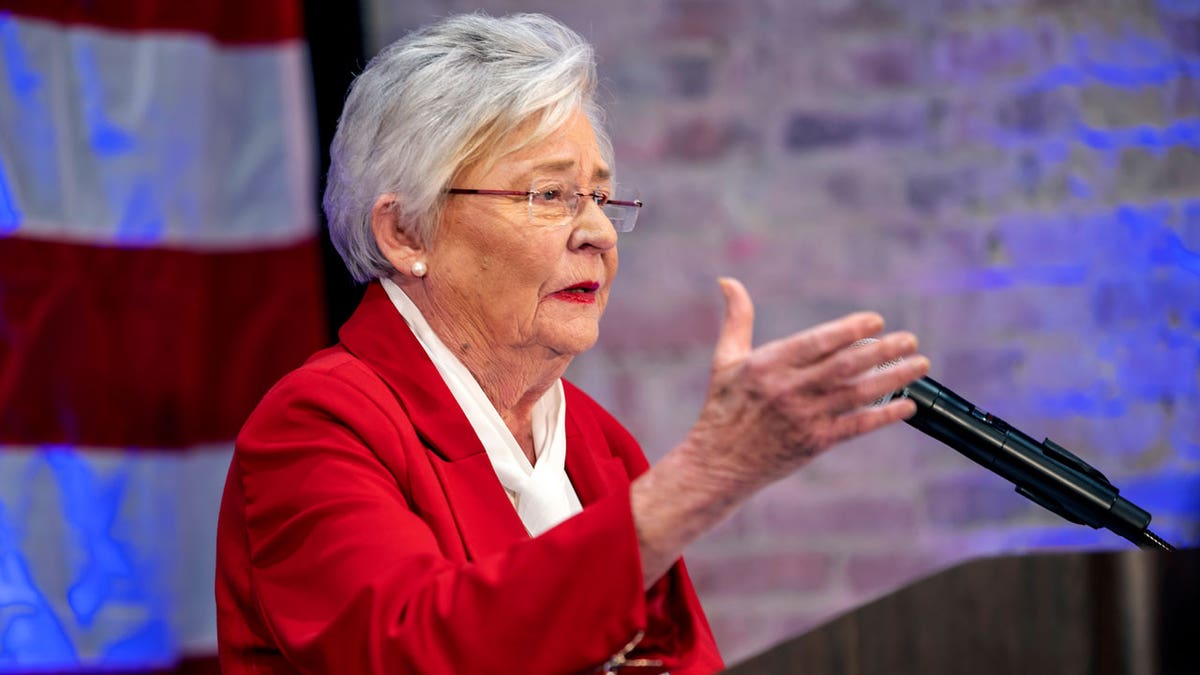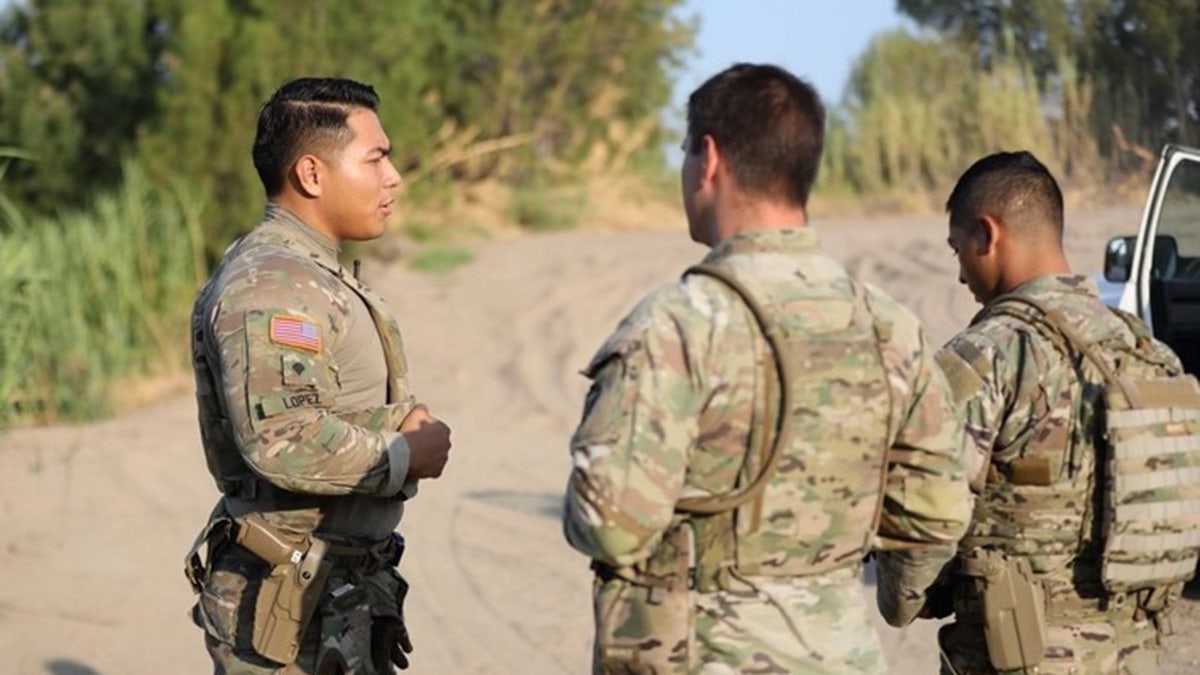Biden administration approves up to 20 miles of new border wall
FOX News White House correspondent Peter Doocy reports on President Biden's approval of border wall construction amid rising migrant crossings on 'Special Report.'
Alabama Gov. Kay Ivey on Thursday announced she will send 275 National Guard troops to the southern border, becoming the latest Republican governor to send soldiers to the region.
"Every state has become a border state under the current policies, and Alabama remains committed to being an integral part of the mission to protect our southern border," the governor said in a statement. "The Alabama National Guard always stands ready to protect our citizens, and I thank our 275 troops, as well as their families, for their important service to our country."
The announcement came after Ivey and 24 other governors urged Biden in a letter to provide "honest, accurate, detailed information" about the ongoing migrant crisis.

Alabama Gov. Kay Ivey speaks to supporters after her re-election victory on Nov. 8, 2022, in Montgomery, AL. Ivey on Thursday said she will send 275 National Guard troops to the southern border. (AP Photo/Vasha Hunt)
"As a result of your policies which incentivize illegal immigration, our states are carrying the burden of both the years-long surge in illegal border crossings and cartels’ coordinated trafficking of drugs and human beings," the 25 governors led by Montana Gov. Greg Gianforte, say in a Sept. 19 letter to Biden.
The letter further stated that: "States are on the front lines, working around-the clock responding to the effects of this crisis: shelters are full, food pantries empty, law enforcement strained, and aid workers exhausted."
In 2018, Ivey, a Republican, sent a small number of National Guard troops to the border to support the Texas National Guard and border officials.

Texas Army National Guard soldiers convene by the border. (Texas Military Department )
In 2022, she joined the American Governors’ Border Strike Force, which is made up of 26 states with the intent of coordinating efforts in deterring illegal immigration on the southern border.
In June, the governors of Virginia, West Virginia and South Carolina announced they were sending troops to the border.















































